Consulting firm McKinsey announced today the release of their latest healthcare centric research study entitled: What Consumers Want in Health Care. Results are the compilation from a survey of some 3000 consumers with particular focus on consumers’ healthcare concerns, perceptions, and how they go about selecting a health plan.
I read the brief article and listened to the many taped interviews they had with consumers. A bias was apparent in their analysis of results, clearly McKinsey is fishing for business among payers, financial service providers and to a lesser extent providers. This bias, which was surprisingly less veiled than most consulting firm pitches, unfortunately slanted the narrative at times leading to some ill-founded conclusions.
But putting this bias aside for a moment, some interesting data (and opportunities) come forth in the video narrative discussion with the following figures that were not included in the Research Brief:

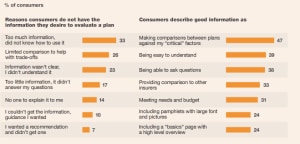
I can certainly empathize with the need for simplicity for I see far too much information that appears as if its purpose is to obfuscate rather than elucidate. Certainly, existing stakeholders (payers) are in the best position to fill this gap. The real challenge here is to provide the personalized information that the consumer seeks while preserving their need for privacy. A very delicate balance, but an area where HR consultants may be able to assist employers with by providing such tools/information to employees. Then again, this may be an area where certain types of Internet-based healthcare information providers may step in. (Note: As a trial I did try Extend Health over on the Revolution Health site and although Extend Health states that they provide coverage in all 50 states, apparently they couldn’t find coverage for me. Unfortunately, this type of occurrence is not that unusual.)
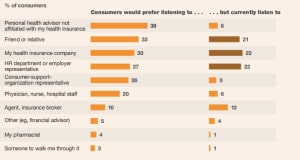
While the McKinsey Research Brief provides some interesting tidbits as outlined above there were a couple of things I found odd.
First were the video interviews. Nary a one represented a young or even young/middle age adult. All of those interviewed appeared to be retirees or soon to be retirees. Where are the families with small children, the young independent professional that may be job-hopping quite regularly as they climb the ladder, or the family with children at home and away at college? Nothing. When reading the research brief, one does find various references to age group differences, but the data in quite thin and analysis lacking. Thus, the research comes across as hardly a representative cross-section of healthcare consumers and makes one suspect the entire research project.
Secondly, I found the nearly complete lack of discussion of the consumer using the Internet for sourcing information to be another major oversight. Tons of studies have been done (Pew Trust is often referenced) about the amount of healthcare related searches now being conducted online. Clearly, the Internet has become a major source of information, but the Internet also remains a quagmire for the average consumer to wade through to get the information they need and want, which is personalized to their particular circumstances. An online health advisor in the model of a financial planner may do quite well here, but McKinsey apparently did not wish to tread into this arena.
Hopefully, they or another will be compelled to perform such a study as this type of information could prove invaluable. Thn again, let’s do a mash-up of research reports, combining this Brief with the Deloitte study released a few months back and the excellent, employer-centric report from Towers-Perrin. Now that could be interesting.

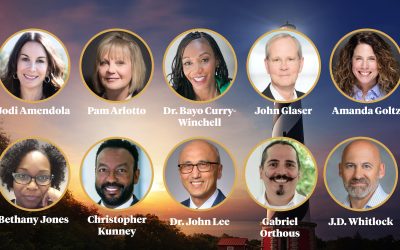
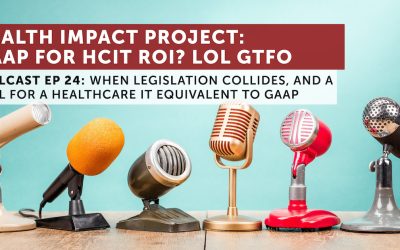
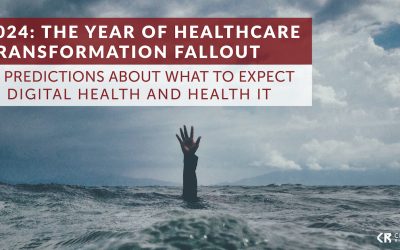
0 Comments
Trackbacks/Pingbacks